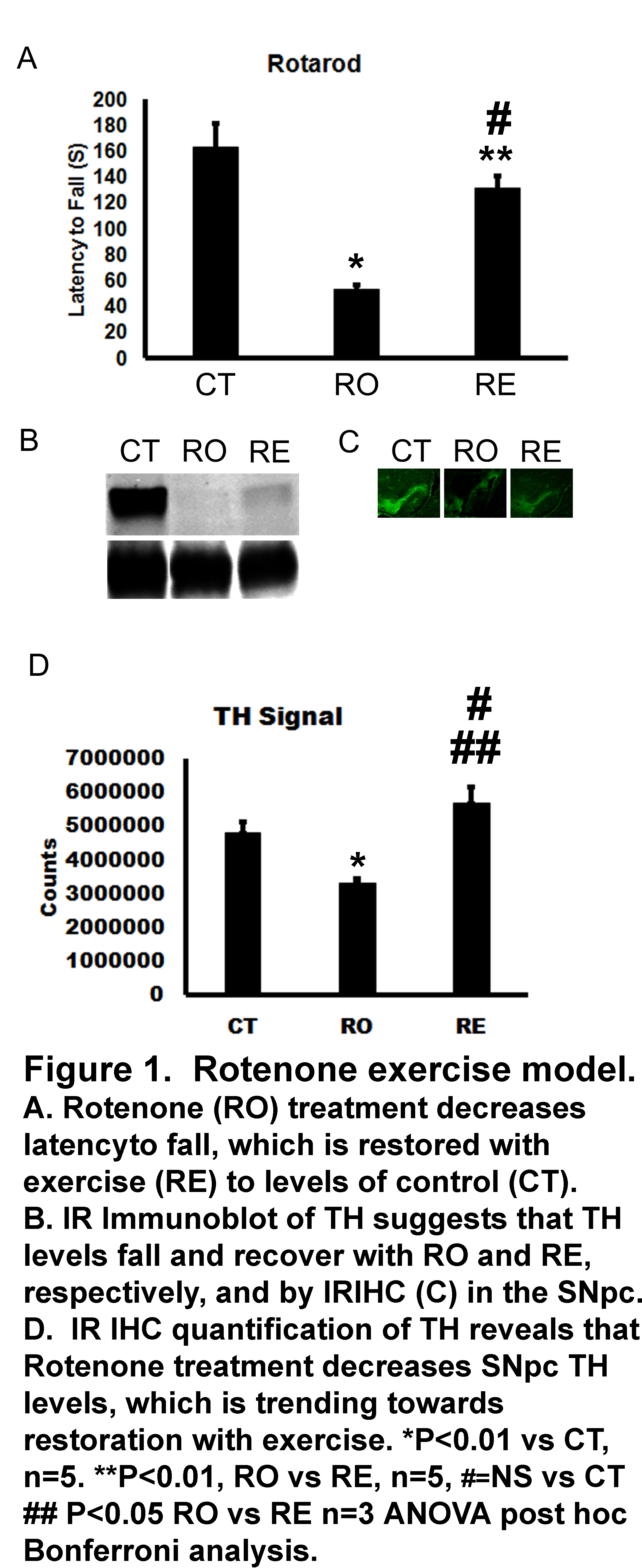About This Project
Principally, Parkinson's Disease (PD) is a lack of motor coordination due to loss of dopaminergic activity, canonically ascribed to neuronal loss. However, tyrosine hydroxylase (TH) is the rate limiting enzyme of dopamine metabolism, and loss of TH, may precede neuronal death. This study will correlate TH with motor function in a model of PD. Thus, TH biology may provide novel strategies for PD treatment.
Ask the Scientists
Join The DiscussionWhat is the context of this research?
Parkinson’s disease (PD) is a movement disorder typified by bradykinesia, resting tremor, and postural instability as a result of degeneration of the tyrosine hydroxylase-positive (TH) dopaminergic neurons of the midbrain. As such, degeneration, often enumerated as neuronal loss, can take years to manifest. Indeed, PD often manifests in the 5th and 6th decade of life or longer. After reading many papers on PD etiology I noted a gross low magnification image of TH stain is included with the study enumerating the neuronal loss. Cell death is not instantaneous. There may be preceding temporal dysregulation of TH, which can also impair DA secretion, prior to cell death, or even in cells not destined to expire.
What is the significance of this project?
First we present a new method of quantifying TH, using a rapid IR histological approach. Secondly we observe a loss and recovery of motor coordination, and TH enzyme in a rotenone-exercise intervention rat model. Lastly we correlate relative TH levels, to motor coordination with bivariate analysis, when pooling control, rotenone treated and rotenone plus exercise treated animals. This will provide some evidence that disruption of dopamine metabolism, and downstream dopaminergic signaling also leads to the motor dysfunction in PD. Thus we provide evidence that TH, may be a novel approach to study PD as a prognostic and interventions aiming at TH dysfunction.
What are the goals of the project?
1) Develop an infrared instrument based scanning approach to fresh frozen sections to assay gross TH levels in control versus rotenone treatment versus rotenone + exercise. Complete
2) Correlate TH levels to motor function in all of the treatments. Complete
3) Create a standard curve of human recombinant TH, to determine the spectrum of sensitivity of the IR based assay. Required and in progress.
4) Apply the above standard curve to determine absolute quantities of TH in the substancia nigra and sub regions in and around the SN. Optional.
Budget
The study is very near completion. Critical reviews have suggested that we need to enrich the data set with more animals, and add additional study addressing the sensitivity of our newly developed near IR assay for TH using a rapid histological imaging approach. Our lab was shut down due to Covid-19, and could not be continued. The study will be completed by as an educational opportunity with an undergraduate and mentor, supervised by the PI-Jason Groshong Ph.D.
 Project Timeline
Project Timeline
We are hoping to complete this work within a years time. The main project will be to test the sensitivity spectrum of the assay.
Mar 13, 2021
Acquire a sponsoring lab and technician
Mar 13, 2021
Collect data, for assay sensitivity and add to the manuscript
Mar 13, 2021
Submit to journals for peer review
Mar 13, 2021
Publish study.
Meet the Team
Jason S Groshong
Jason studies mechanism of disease, with topics ranging from peripheral and central neurodegeneration, muscle biology, cancer biology, diabetes and obesity. He currently focuses on the parallels between Diabetes, Parkinson's, and Alzheimer's disease, something that has fascinated him for about 20 years now.
Additional Information

Project Backers
- 0Backers
- 0%Funded
- $0Total Donations
- $0Average Donation
